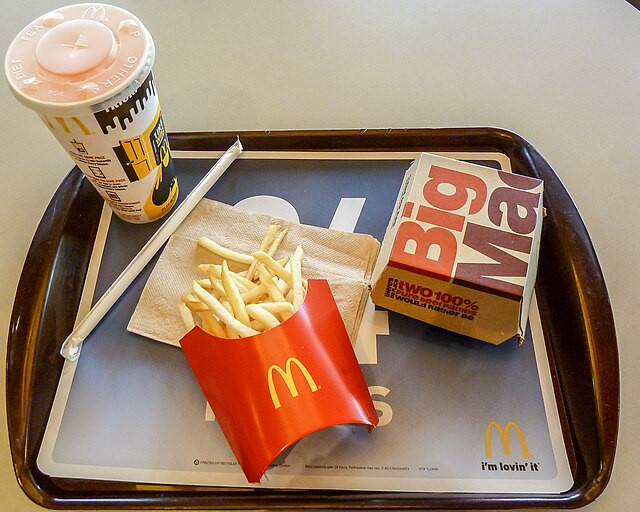The European Union's General Court ruled against fast-food giant McDonald's in a trademark dispute over the use of the "Big Mac" name for poultry products. The court's decision, announced on Wednesday, marks a partial victory for Irish fast-food chain Supermac's, which had challenged McDonald's trademark claim.
The ruling states that McDonald's failed to prove it had used the "Big Mac" trademark for chicken sandwiches, poultry products, or related restaurant services over the past five years. This decision has broader implications for trademark use and enforcement within the EU, potentially affecting other multinational corporations.
The origins of this dispute trace back to Supermac's application in 2017 to revoke McDonald's "Big Mac" trademark registration with the EU Intellectual Property Office (EUIPO). Supermac's argued that McDonald's had not genuinely used the "Big Mac" name for certain categories beyond its famous beef burger, such as chicken products and restaurant services. According to EU trademark law, a trademark must be actively used within five years to maintain its protection.
The EUIPO initially dismissed Supermac's application, affirming McDonald's use of the "Big Mac" trademark for meat and chicken sandwiches. However, Supermac's persisted, appealing the decision to the General Court.
In its judgment, the General Court concluded, "McDonald's has not proved that the contested mark has been put to genuine use in connection with chicken sandwiches, food made from poultry products, or services associated with operating fast-food, drive-through, or take-out restaurants." This ruling partially annulled the EUIPO's earlier decision, effectively stripping McDonald's of its trademark rights for "Big Mac" in connection with poultry products.
Pat McDonagh, Managing Director of Supermac's, hailed the ruling as a landmark victory for small businesses. "This is a significant ruling that takes a common-sense approach to the use of trademarks by large multinationals. It represents a significant victory for small businesses throughout the world," McDonagh said in a statement. He accused McDonald's of "trademark bullying to stifle competition."
The legal battle's outcome allows Supermac's to pursue its expansion plans into other EU countries, a move that McDonald's had previously contested, fearing consumer confusion. Supermac's, which was founded in Galway in 1978, has grown steadily within Ireland and aims to extend its presence across Europe.
Despite the ruling, McDonald's remains unfazed, emphasizing that the decision does not impact its right to use the "Big Mac" trademark for its beef burger, which remains popular across Europe. "The decision by the EU General Court does not affect our right to use the 'BIG MAC' trademark. Our iconic Big Mac is loved by customers all across Europe, and we're excited to continue to proudly serve local communities, as we have done for decades," the company said in a press statement.
The ruling can still be appealed to the European Court of Justice, the EU's highest court, but only on points of law. This potential appeal could prolong the legal tussle, but for now, Supermac's has secured a crucial win.
Legal experts suggest that this case serves as a wake-up call for trademark owners. "This is a huge wake-up call, and owners of well-known trademarks cannot simply rest on the premise 'it is obvious the public know the brand and we have been using it'," said Matthew Harris, an intellectual property lawyer at Pinsent Masons. "The case highlights that even globally renowned brands are held to the same scrutiny when having to evidence genuine use of a trademark in a given territory."






